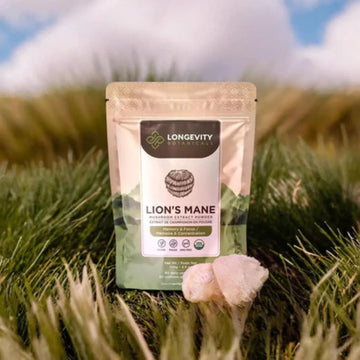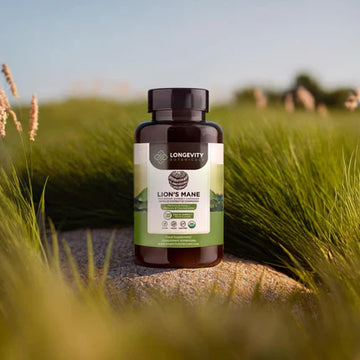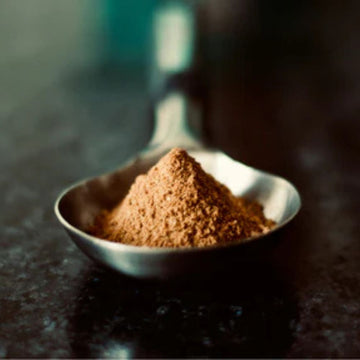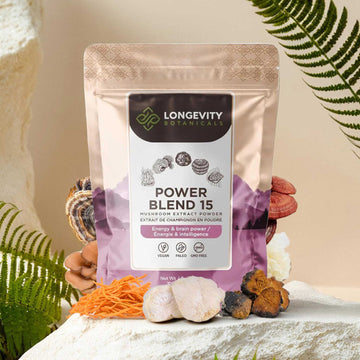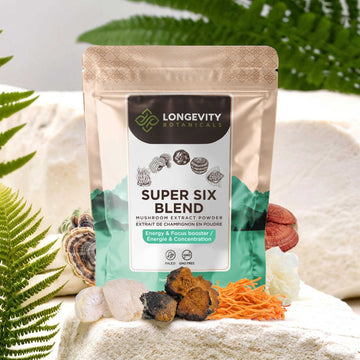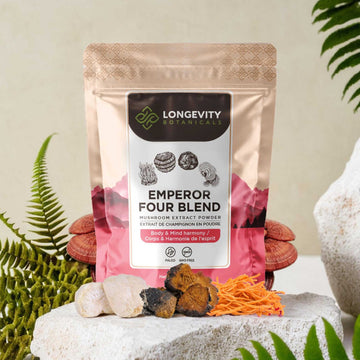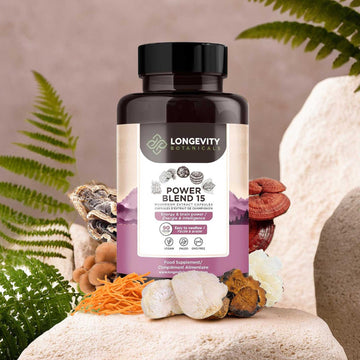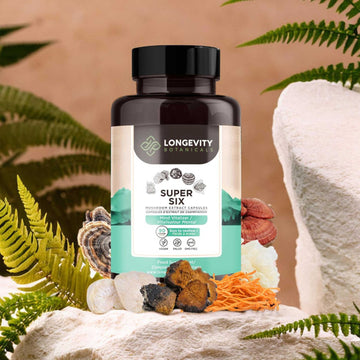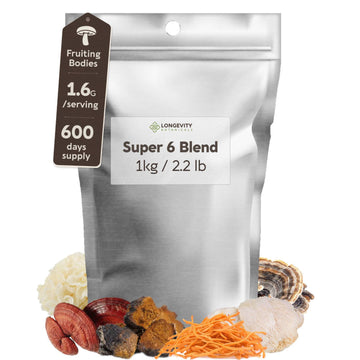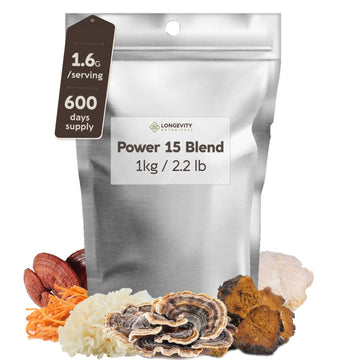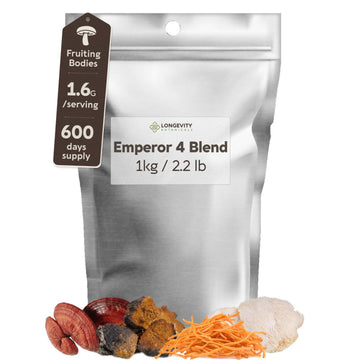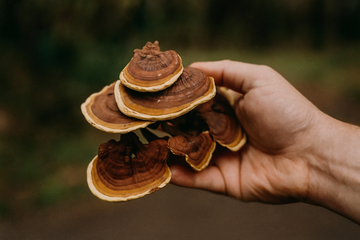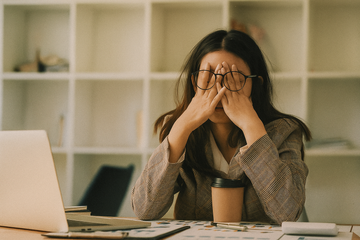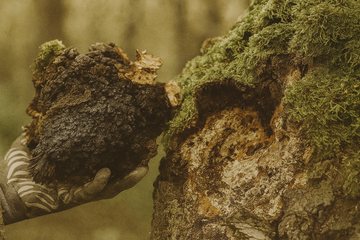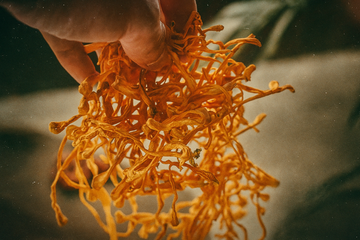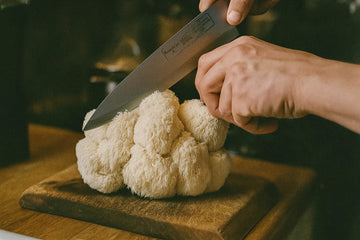Reishi, also called Ganoderma lucidum, has been used for centuries to calm the body and settle the mind. Many people take it at night hoping for deeper, more restful sleep. But what does human research actually show? Below, we translate the science into plain language, highlight the best clinical data available, and share practical tips you can use tonight.
What “better sleep” really means in studies
Sleep quality is measured with simple questionnaires. One common tool is the Pittsburgh Sleep Quality Index, which asks about how long it takes you to fall asleep, how often you wake, and how refreshed you feel. Scores go down when sleep improves. Researchers also use single questions about “insomnia” or “sleep disturbance” inside larger quality-of-life surveys in clinical trials. These are not lab polysomnography, but they do track how people actually feel and function.
The best human evidence we have on reishi and sleep
Breast cancer survivors, 4-week trial. In a randomized, placebo-controlled pilot study of 48 women receiving hormonal therapy, participants took reishi spore powder for four weeks. Compared with placebo, the reishi group reported better overall quality of life and less fatigue. Importantly for sleep, the “insomnia” item on the standard cancer quality-of-life survey improved more in the reishi group than in placebo after four weeks. This suggests a meaningful, patient-felt benefit for sleep alongside mood and energy improvements. Read the trial on PubMed.
Neurasthenia, 8-week trial. In a larger randomized, double-blind, placebo-controlled study of 132 adults with neurasthenia (a condition marked by fatigue, poor rest, and low resilience), a standardized reishi polysaccharide extract improved clinician ratings and reduced fatigue more than placebo over eight weeks. While sleep was not the primary outcome, the symptom cluster studied includes non-restorative sleep, and the daily dose and time frame help set practical expectations. Read the trial on PubMed.
What to take from these trials. Together, these studies indicate that reishi may help people sleep better, especially when stress, fatigue, or ongoing medical treatment disrupt rest. The breast cancer study is small and short. The neurasthenia study supports improvements in well-being that often travel with better sleep. More high-quality trials in people with primary insomnia are still needed.
How reishi might support sleep
Reishi contains polysaccharides and triterpenes that interact with the gut and immune system. Animal research gives us a plausible path for how that could translate to better sleep in humans.
Gut-brain crosstalk. A 2021 study in mice found that an acidic fraction of reishi mycelia promoted sleep by changing the gut microbiota and raising serotonin in the brain’s sleep centers. When the animals’ gut bacteria were suppressed with antibiotics, the sleep-promoting effect disappeared. This points to a gut-microbiome mechanism that may help explain the improvements people report. See the Nature (Scientific Reports) paper.
Calming the stress response. In both animal and human contexts, reishi preparations often reduce markers linked to stress and inflammation. Lower daytime stress and calmer physiology in the evening can make it easier to fall asleep and stay asleep. This fits what participants reported in the breast cancer trial, where anxiety and depression scores also improved alongside sleep.
Practical, easy-to-use guidance
What form to choose. Look for extracts made from the 100 percent fruiting body with verified beta-glucan content. Fruiting bodies naturally concentrate the compounds most associated with reishi’s traditional effects. If you want a quick refresher on why fruiting body quality matters, see our primer on fruiting body vs. mycelium.
How much has been used in studies. In the 8-week neurasthenia trial, adults took 1,800 milligrams of a polysaccharide-rich reishi extract three times per day, for a total of 5,400 milligrams daily. That is a high clinical dose of a standardized extract, not raw powder. If you are using a concentrated extract capsule or powder, typical daily ranges are lower. Start with the label dose from a reputable brand and adjust slowly.
When to take it. Many people do best taking part of the dose 30 to 60 minutes before bed, and another small portion in the late afternoon, especially if stress builds during the day. For more timing tips, read our guide to the best time to take reishi and our short article on reishi before bed.
Powder or capsules. Capsules are convenient and consistent. Powders are easy to fold into an evening tea or hot chocolate. If you prefer a drink, here is a quick walk-through on how to use reishi mushroom powder in simple nighttime recipes.
How long before you notice a change. In the breast cancer study, sleep-related improvements showed up within four weeks. In practice, people often report calmer evenings within 7 to 14 days, with deeper changes emerging across 4 to 8 weeks. Consistency matters.
Who might benefit most
Stress-related sleep trouble. If your racing mind keeps you awake, reishi’s calming effects may help you wind down and fall asleep a bit faster.
Fragmented sleep from ongoing treatment or life stress. People under chronic strain, including those in medical care, may find reishi helps smooth out the night by easing the stress-inflammation loop that disrupts rest. This is consistent with improvements seen in quality-of-life trials.
Safety, interactions, and smart use
Reishi is generally well tolerated, but there are important cautions.
Bleeding risk. Reishi can increase bleeding tendency. If you take anticoagulants or antiplatelet drugs, or you have a bleeding disorder, talk with your clinician before using it. Authoritative integrative-medicine sources flag this interaction.
Liver safety. Although uncommon, case reports link reishi powders or concentrates to liver injury, especially with prolonged, high-dose use or combined with alcohol or other herbs. Stop and seek care if you notice dark urine, pale stools, abdominal pain, or yellowing of the eyes.
Immune conditions and medications. Because reishi modulates the immune system, people on immunosuppressants should avoid it unless their specialist agrees.
What to do in practice. Choose a quality extract, start low, go slow, and reassess sleep after 4 to 6 weeks. If you take prescription medicines, especially blood thinners or immune-suppressing drugs, involve your healthcare team.
Simple bedtime routine with reishi
One hour before bed. Dim lights, turn down screens, and brew a small mug of warm milk or non-dairy milk with reishi powder. Add cinnamon if you like.
Thirty minutes before bed. Take a slow 5-minute walk or do gentle stretches. Breathe in for four counts, out for six counts, for five rounds.
At lights out. Remind your brain that night is for recovery. If thoughts pop up, jot one line on a notepad and return to your breath. Simple habits make supplements work better.
Bottom line
Reishi is not a sleeping pill. It is a steady, calming support that can make your nights smoother over weeks, not overnight. The best human data so far comes from a four-week randomized trial where reishi spore powder improved insomnia scores in breast cancer survivors, and an eight-week trial where a high-dose extract improved well-being in adults with fatigue-dominant symptoms. Mechanistic studies point to gut-brain pathways that make biological sense. If you want a natural option with a low side-effect profile, reishi is a reasonable, evidence-aligned choice when used thoughtfully and safely. Clinical pilot trial, randomized 8-week trial, and mechanism paper linked above for your own review.
Want a ready-to-use option. If capsules are easier for your routine, explore our certified organic red reishi capsules, made from 100 percent fruiting body extract with verified beta-glucans.
